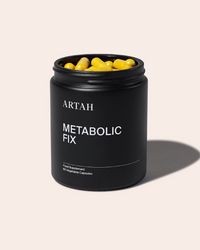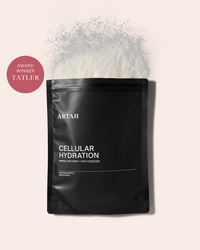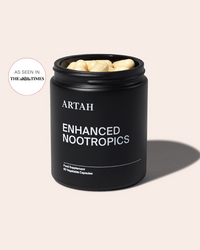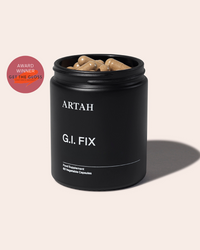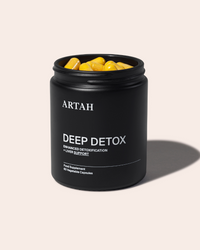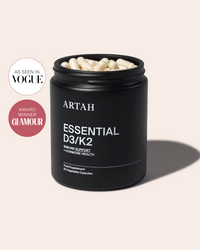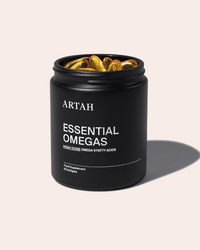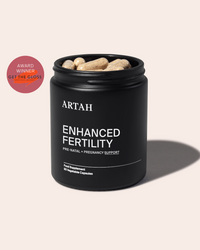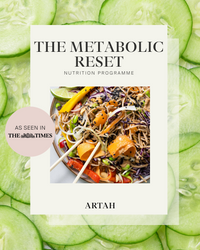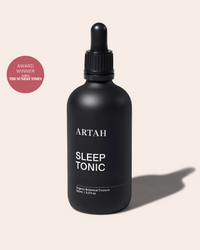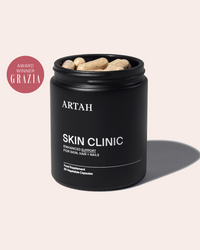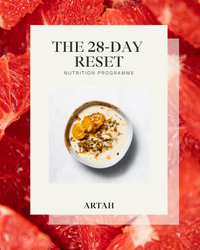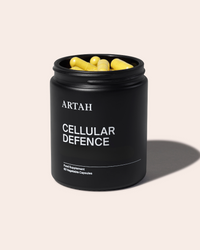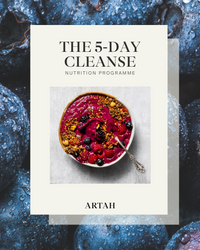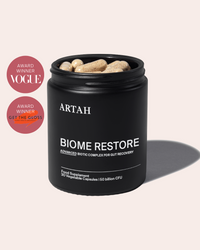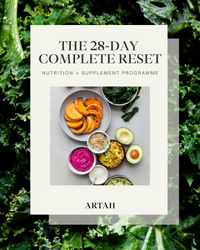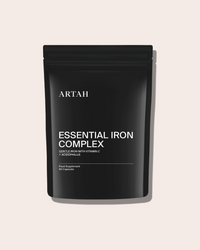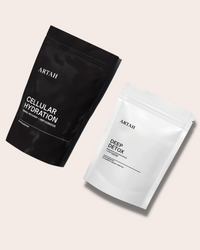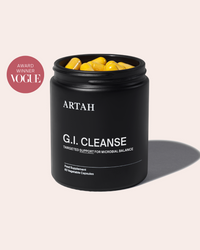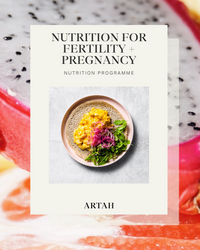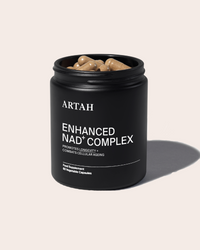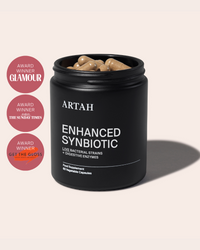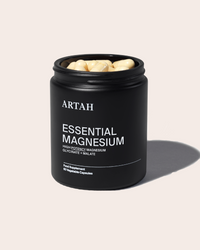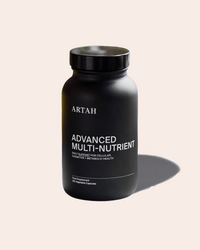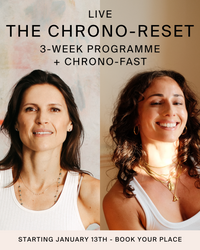NAD+ and Cellular Ageing
Our biological age refers to the rate at which our cells are ageing, whereas our chronological age is our actual age in years. When it comes to cellular ageing, Nicotinamide Adenine Dinucleotide – or NAD+ - is perhaps the most exciting compound on the scene right now. NAD+ is a natural coenzyme found in virtually every cell in the body that helps regulate metabolism, energy, and the genetic pathways that contribute to longevity. It's involved in everything from blood sugar and energy production to activating the pathways involved in cellular maintenance and repair. NAD+ also oversees DNA repair and fine-tunes gene expression – the cornerstones for healthy ageing and longevity(1).
Why NAD+ Levels Are Important
We experience a profound decline in this crucial enzyme, which is at the heart of most of the Hallmarks of Ageing. By the time we’re 40, NAD+ levels have dropped by 50% and continue to halve every 20 years. In addition to the natural loss of NAD+ with age, lifestyle factors like diet, stress, sleep, lack of exercise, and environmental toxins can also contribute to its decline. As this happens, we can experience a reduction in physical and mental energy, slower recovery, metabolic dysfunction, and accelerated ageing.
NAD+ is involved in over 500 reactions in the body, including:
ENERGY
NAD+ is the main coenzyme involved in energy production pathways within the mitochondria of our cells. Think of mitochondria as the powerhouses of our cells; they generate the energy we need to function. Mitochondrial dysfunction is a loss of efficiency within the mitochondria, and results in less production of ATP, our molecular unit of energy. This is characteristic of ageing, and all degenerative diseases, including neurological disease, CVD, diabetes and metabolic disease, and autoimmunity.
INFLAMMATORY RESPONSES
Inflammatory responses are a normal part of a healthy metabolism; however, instead of normal, transient increases in inflammatory responses, our modern lifestyle tends to lead to chronic responses. Chronic inflammation has been implicated in early ageing (termed 'inflammaging') and is both a risk factor for and exacerbation of virtually every chronic disease. Natural NAD+ in the body is involved in controlling the production of inflammatory cytokines and healthy immune responses.
SLEEP
NAD+ plays an important role in the regulation of circadian rhythms through its action on Sirtuins, which are proteins involved in cellular regulation. SIRT1 is one of the controllers of circadian rhythm and sleep via its regulation of wake-sleep neurotransmitters. The decline in NAD+ impacts our circadian rhythm and quality of sleep, and lack of sleep may lead to a worsening of metabolic control, emotional wellbeing, immune resilience and more.
What Happens to NAD+ As We Age
The loss of NAD+ as we age is thought to set off a cascade of molecular events that contribute to slower metabolism and less resilience against cellular damage(1). One of the most significant consequences of declining NAD+ levels is impaired cellular energy production and an accumulation of harmful by-products known as free radicals. In simple terms, there’s a reduction in our cell’s ability to perform everyday tasks as they once did – on a cellular level, this may look like a reduced ability to repair damage, less energy production, and an exacerbated inflammatory response. On an experiential level, it’s harder to hit the ground running following a stressful time at work, a night of drinking, to recover from a cold, or rebound from a hard workout, as examples.
NAD+ depletion can also compromise the efficiency of our DNA repair mechanisms, which leaves cells more vulnerable to genomic instability. These repair mechanisms are important to maintain healthy ageing, and are implicated in the development of various age-related diseases, such as cognitive decline, metabolic disorders, sarcopenia and frailty(3). Studies suggest that restoring NAD+ metabolism may help slow cellular decline, and could be the missing piece of the puzzle for extending both lifespan and healthspan. (3)
STRESS
Stress comes in many forms, from juggling family and work pressure to overexercising or unhealthy relationships, and NAD+ depleting enzymes are affected by stress (1). Because this can impact DNA expression, increase inflammatory compounds, and interrupt cellular function (1), stress management is an essential aspect of healthy ageing. The power that our emotions have over how well we age shouldn’t be underestimated; studies have shown that cultivating close personal relationships, being a part of a community, and having a strong sense of purpose are all factors that can reduce the risk of chronic illness and influence how well we age. In addition to everyday stressors, there are also other metabolic and cellular stressors, like viruses and chemical exposures, which can deplete NAD+.
For example:
EXCESSIVE SUNLIGHT EXPOSURE
Excessive sunlight exposure, especially without adequate protection, can lead to skin damage and increase the production of free radicals, which may deplete NAD+ levels. Our bodies rely on NAD+ to repair cells that sustain damage due to prolonged exposure to UV radiation(4). On the other hand, sunlight exposure stimulates the production of Vitamin D, which is critical for cellular and metabolic health, so striking the right balance is key.
ENERGY IMBALANCE
As our energy intake surpasses our expenditure, our metabolism falls out of balance, posing a challenge to our NAD+ metabolism(5). With the predominantly sedentary lifestyle of today, maintaining equilibrium becomes increasingly challenging, especially when considering the rise of calorie-rich ultra-processed foods.
ALCOHOL
Alcohol metabolism requires NAD+ as a coenzyme to convert ethanol into acetaldehyde(6). When we consume alcohol, NAD+ is utilised in this conversion process, which leads to a decrease in its availability for other cellular functions(7) – one of the reasons our energy can be so poor the day after. The metabolism of alcohol also generates reactive oxygen species (ROS), which can cause oxidative stress and inflammation, which further deplete NAD+ levels, accelerating ageing(7).
A Holistic Approach To Boost NAD+
SUPPLEMENTATION
Vitamin precursors of NAD+, such as Niacin (Vitamin B3) and Nicotinamide Riboside (NR), have been shown to boost NAD+ levels (8), with NR as a standout. Being the largest molecule capable of penetrating cells and replenishing NAD+, it possesses the unique ability to efficiently enhance NAD+ levels across a wide array of cells and tissues(8). Taking a holistic approach to NAD+ also means improving the efficiency of our NAD+ salvage pathways – how we recycle and reuse NAD+ – and combatting inflammation, which is a core consumer of NAD+. Phytonutrients like Ginsenosides (from Panax Ginseng), Resveratrol, Quercetin, Saffranal (from Saffron), and Procyanidins (from Maritime Pine Bark); these compounds can be found in Enhanced NAD+ Complex, alongside NR and Niacin.
DIET
Foods high in Niacin include poultry, fish, peanuts, and whole grains (9). A balanced diet rich in fruits, vegetables, and lean proteins provides polyphenol nutrients that help support overall cellular and microbial health, and therefore, indirectly help maintain NAD+ levels (10). However, directly increasing NAD+ through dietary means alone may be challenging as we age, which is why it's important to take a holistic approach.
LIFESTYLE
Lifestyle factors such as regular exercise (specifically HIIT and endurance cardio), and intermittent fasting (IF) or including periods of calorie restriction (CR) have been shown to increase NAD+ levels (5). Whilst IF and CR can be helpful tools, the most important step is may be the reduction of ultra-processed foods in favour of natural, minimally processed foods. We can also take simple steps, like reducing snacking and extending the time between your last and first meal of the day, to help deliver benefits to both the microbiome and NAD+ levels.
Final Thoughts
As a vital coenzyme, NAD+ fuels essential metabolic processes, supports DNA repair mechanisms, and regulates gene expression — key components for healthy cellular ageing. Ageing is a natural journey, and our aim is not to turn back the clock but rather to age with grace and optimal health on a cellular level. As we navigate the joys and challenges of life, we encounter metabolic stressors inherent in many of life's pleasures - like indulging in hearty meals, good wine, or soaking up the sun (in moderation) – so balance is key.
WHERE TO START
- Consider this: Enhanced NAD+ Complex
- Start this: Stress management techniques
- Eat this: The Metabolic Reset, for a phytonutrient rich approach to nutrition combined with IF with over 95 healthy recipes
- Do this: an audit of your lifestyle to see which habits are serving you, and where you can implement tools and practices that can support your longevity
REFERENCES
- Mehmel M, Jovanović N, Spitz U. Nicotinamide Riboside-The Current State of Research and Therapeutic Uses. Nutrients. 2020, 31;12(6):1616.
- Attia P, Gifford B.Outlive: The Science & Art of Longevity. Penguin Random House UK. 2023
- Covarrubias AJ, Perrone R, Grozio A, Verdin E. NAD+ metabolism and its roles in cellular processes during ageing. Nat Rev Mol Cell Biol. 2021, 22(2):119-141.
- Fania L, Mazzanti C, Campione E, Candi E, Abeni D, Dellambra E. Role of Nicotinamide in Genomic Stability and Skin Cancer Chemoprevention. Int J Mol Sci. 2019. 26;20(23):5946.
- Cantó C, Menzies KJ, Auwerx J. NAD(+) Metabolism and the Control of Energy Homeostasis: A Balancing Act between Mitochondria and the Nucleus. Cell Metab. 2015, 7;22(1):31-53.
- Braidy N, Villalva MD, van Eeden S. Sobriety and Satiety: Is NAD+ the Answer? Antioxidants (Basel). 2020, 14;9(5):425.
- McElfresh KC, McDonald JF. The effect of alcohol stress on nicotinamide adenine dinucleotide (NAD+) levels in Drosophila. Biochem Genet. 1983, 21(3-4):365-74.
- Covarrubias AJ, Perrone R, Grozio A, Verdin E. NAD+ metabolism and its roles in cellular processes during ageing. Nat Rev Mol Cell Biol. 2021, 22(2):119-141
- Freese R, Lysne V. Niacin - a scoping review for Nordic Nutrition Recommendations 2023. Food Nutr Res. 2023,12;67.
- Alegre, G.F.S., Pastore, G.M. NAD+ Precursors Nicotinamide Mononucleotide (NMN) and Nicotinamide Riboside (NR): Potential Dietary Contribution to Health. Curr Nutr Rep 12, 445–464 (2023).






